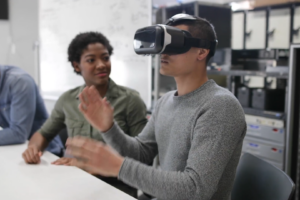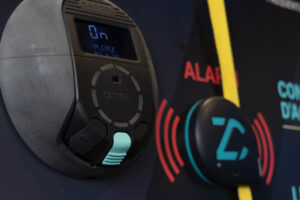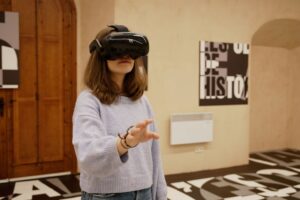
CIT UPC participates in the Ambassador programme of the International Mobility Congress 2022
October 19, 2022
UPC innovations to improve life in cities, at the Smart City Expo World Congress 2022
November 15, 2022
CIT UPC participates in the Ambassador programme of the International Mobility Congress 2022
October 19, 2022
UPC innovations to improve life in cities, at the Smart City Expo World Congress 2022
November 15, 202221/10/2022
UPC, along with other entities in the world of research, government and business, has participated in the TECNIO 2022 congress, which was held in the University of Girona on 19 October. The congress, which was attended by around 200 people, was focused on discussing the challenges faced by the knowledge transfer ecosystem to make Catalonia a technological innovation hub.
At the congress, several aspects were highlighted. These included Catalan government bodies’ responsibility for knowledge transfer and the fact that investment in research must have an impact on society. New trends in technology transfer and business innovation and the value of research activity to improve business competitiveness were discussed. In addition, it was noted that policies of collaboration between universities and companies must be promoted, and innovation and digitalisation should be fostered as key elements to increase business productivity.
It was stressed that companies must see research institutes as an essential technology partner, beyond the collaborative framework that exists currently. The capabilities of technology centres must be connected with real market needs. In addition, entrepreneurship and the creation of spin-offs was discussed; a formula used by research institutions to transfer technology to the market. The role of technology transfer offices (TTO) was also addressed, among other topics.
On behalf of the UPC, vice-rector for Transfer, Innovation and Entrepreneurship, Climent Molins attended. Several directors of research groups and centres also participated. Ernest Teniente, director of inLab FIB, took part in the round table Time to transfer: mechanisms to ensure that research reaches the market. This addressed the need for government bodies, research institutions and the business sector to work together to promote intensive collaboration policies that enable researchers to continue with their projects to bring them to the market. Santiago Royo, director of the Centre for Sensors, Instruments and Systems Development (CD6) participated in the round table Research & Tech-Transfer Career, on professional career. He stressed the need for the merits of technology transfer to be valued in academic careers in the same way as in research careers.
Manel Arrufat, from the UPC Innovation Management Service, also participated in the congress. He defined spin-offs as “magnificent vehicles for technology transfer, even though more money needs to be invested and more facilities need to be established for research centres and researchers in the phases of maturing technologies, to generate technology transfer that has an impact and value for society.”
Apart from the round tables, in the exhibition area the TECNIO groups and centres displayed their projects and technological capabilities. For example, CD6 exhibited a robotic arm with sensors 75 cm high.
Related Projects
- The Visualisation, Virtual Reality and Graphic Interaction Research Group (ViRVIG) at the Universitat Politècnica de Catalunya - BarcelonaTech (UPC) has participated in the XR4ED project, an initiative that connects the educational technology (EdTech) and Extended Reality (XR) sectors, with the aim of transforming learning and training across Europe.
- The inLab FIB at the UPC has collaborated with Lizcore® for the development of a proof of concept based on artificial intelligence to improve safety in climbing with autobelay devices. The system allows the automatic and accurate detection of risk situations before starting a route.
- Researchers from the Centre for Image and Multimedia Technology of the UPC (CITM) and from the DiCode research group (Digital Culture and Creative Technologies Research Group) of the Universitat Politècnica de Catalunya – BarcelonaTech (UPC) have worked on the project The Eyes of History, an initiative of the Catalan Agency for Cultural Heritage that offers an immersive view of Catalan cultural heritage. It is especially aimed at the first and second cycles of secondary education and was created to bring heritage into the classroom. Its goal is to bring the history and monuments of Catalonia closer in a vivid and innovative way, using tools such as virtual reality and new museographic narratives.
- City and Play is a social action project coordinated by researchers from the Centre for Image and Multimedia Technology (CITM) and the DiCode research group (Digital Culture and Creative Technologies Research Group) of the Universitat Politècnica de Catalunya – BarcelonaTech (UPC), the Universitat Oberta de Catalunya (UOC) and the University of Barcelona (UB), and funded by Barcelona City Council. The aim of the project is to promote civic competences and reflection on the urban environment among adolescents through the creation of an open framework that uses methodologies based on play, co-creation and storytelling.




